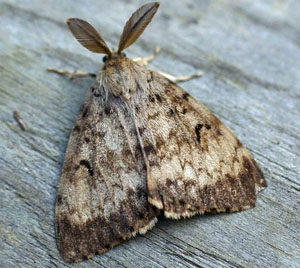Gypsy moth spraying in Paulding County
Ohio Dept. of Agriculture information
REYNOLDSBURG — The Ohio Department of Agriculture will begin aerial treatments designed to disrupt gypsy moth mating on 13,275 acres in Allen, Auglaize, Hancock, Mercer, Paulding, Putnam and Wyandot counties.
To help protect Ohio’s diverse habitat, the Ohio Department of Agriculture operates multiple programs aimed at managing the gypsy moth in Ohio. One such program, the Slow-the-Spread program, focuses on monitoring, detecting, and reducing isolated populations to slow the gypsy moth’s movement across the state through treatments.

Airplanes will fly 100-200 feet above the treetops to apply the treatment throughout the day. Weather permitting, treatments will begin in northwest Ohio the week of June 22 and occur over one or two days.
In all counties receiving treatment, the department will use a single application of the product Disrupt II. This product does not kill the moth, but it disrupts the mating process by confusing the male as it searches for a female mate. Disrupt II is not harmful to birds, plants, pets or humans.
Pre-recorded daily updates about planned treatment blocks are available to citizens by calling 614.387.0907 or 800.282.1955, extension 37, after 5 p.m.
The gypsy moth is a non-native, invasive species that feeds on the leaves of more than 300 different trees and shrubs and is especially fond of oak. A healthy tree can usually withstand only two years of defoliation before it is permanently damaged or dies. To date, 51 of Ohio’s 88 counties have established gypsy moth populations.
For more information on the gypsy moth, including maps of treatment areas and videos of the mating disruption process, visit http://www.agri.ohio.gov/divs/plant/gypsy/gypsy-index.aspx.
POSTED: 06/18/15 at 6:45 am. FILED UNDER: News







